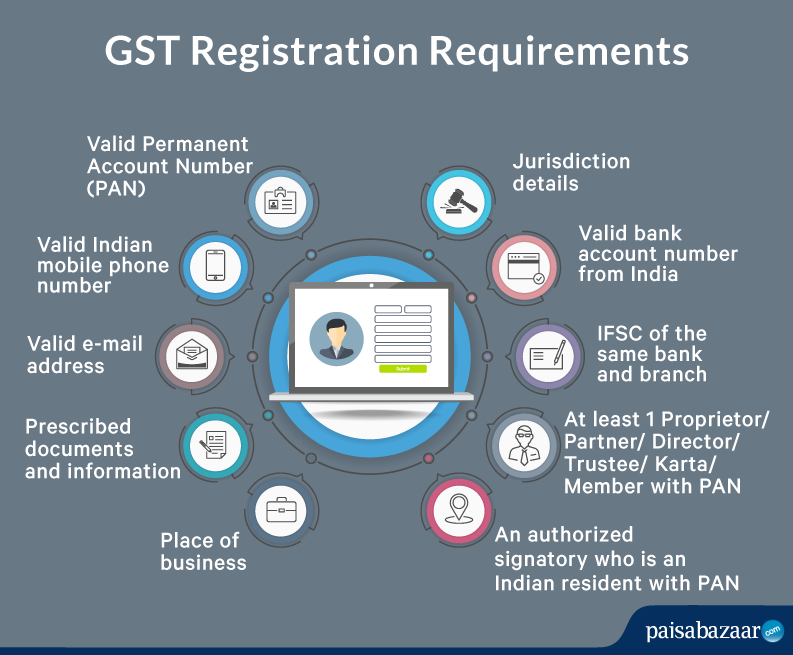Contrast and Pick the very best GST Registration Services in Singapore for Your Demands
Contrast and Pick the very best GST Registration Services in Singapore for Your Demands
Blog Article
Throughout: The Ultimate Roadmap to GST Enrollment for Businesses Seeking Financial Stability
Browsing the complexities of Product and Solutions Tax Obligation (GST) registration is a critical action for organizations making every effort for monetary stability. Breaking down the roadmap into manageable actions can streamline the registration journey for businesses looking to enhance their monetary standing.
Understanding GST Basics
Looking into the fundamental principles of Item and Provider Tax (GST) is essential for gaining a detailed understanding of its effects on organizations and the economy. GST is a value-added tax obligation imposed on the majority of items and solutions for domestic consumption. It has changed several indirect taxes that existed in the pre-GST age, improving the tax obligation structure and enhancing convenience of doing service in India. Under the GST system, both products and solutions are tired at a details price, which is identified based upon their category. Services are needed to register for GST if their yearly turnover surpasses the threshold limit established by the federal government. Input Tax Obligation Debt (ITC) is a considerable feature of GST, allowing organizations to assert credit report for taxes paid on inputs, minimizing the overall tax worry. Understanding the basics of GST is vital for organizations to comply with tax policies, manage their financial resources efficiently, and add to the nation's economic development by taking part in a transparent tax system.
Qualification Requirements for Registration
As of the current laws, the threshold limitation for GST enrollment is an annual accumulation turn over of 40 lakhs for companies operating within a state, other than for special classification states where the limitation is 20 lakhs. Additionally, specific businesses are called for to register for GST regardless of their turnover, such as interstate vendors, laid-back taxed persons, and services responsible to pay tax obligation under the reverse cost mechanism. It is vital for businesses to completely analyze their turn over and transaction kinds to identify their GST registration obligations properly.
Files Required for Enrollment
Having fulfilled the eligibility standards for GST registration, services should now ensure they have the requisite records in position to proceed with the enrollment process efficiently. The documents required for GST enrollment typically include proof of business constitution, such as partnership action, registration certificate, or incorporation certificate for different types of businesses. Additionally, companies need to give papers developing the principal business, such as a rental contract or electricity bill. PAN card of the company, in addition to the identification and address proof of promoters/partners/directors, are necessary for verification functions. Checking account statements, along with terminated cheques or a copy of the bank passbook, are needed to validate the financial details provided during enrollment. Companies need to have electronic trademarks ready for the accredited notary. Making certain all these records are organized and conveniently available will certainly accelerate view it the GST registration process, enabling companies to abide by tax regulations flawlessly.
Step-by-Step Enrollment Refine
Commencing the GST enrollment procedure includes a series of organized steps to make certain a certified and seamless enrollment for organizations. The initial action is to visit the GST website and submit the enrollment kind with precise details of business entity. Following this, the candidate obtains a Short-lived Referral Number (TRN) which is utilized to return to the application process if it's not completed in one go.
Next, all called for documents as per the checklist given by the GST portal requirement to be posted. These documents usually consist of proof of company enrollment, address and identification evidence of promoters, financial statements, and company entity's frying pan card.

Post-Registration Compliance Standards

Conclusion
Finally, companies looking for economic security should understand the basics of GST, satisfy qualification standards, collect required papers, follow the detailed enrollment process, and follow post-registration guidelines - Best GST registration services in Singapore. By sticking to these actions, businesses can guarantee compliance with tax obligation guidelines and maintain financial stability over time
In addition, specific organizations are needed to sign up for GST irrespective of their turn over, such as interstate providers, informal taxable individuals, and businesses liable to pay tax under the reverse cost system.Having satisfied the eligibility requirements for GST registration, services should currently guarantee they have the requisite documents in place to continue with the registration process successfully. The records needed for GST registration usually consist of proof of company constitution, such as collaboration act, enrollment certificate, or incorporation certificate for different kinds of organizations. Related Site Additionally, organizations require to give files establishing the primary area of business, such as a rental agreement or electricity expense.Starting the GST registration procedure includes a series of structured steps to make certain a compliant and seamless enrollment for organizations.
Report this page